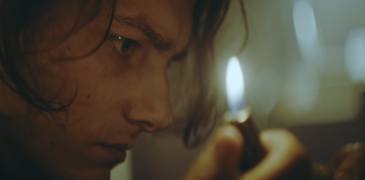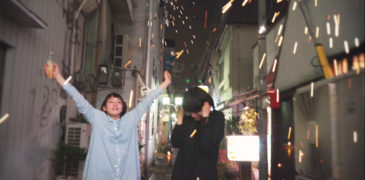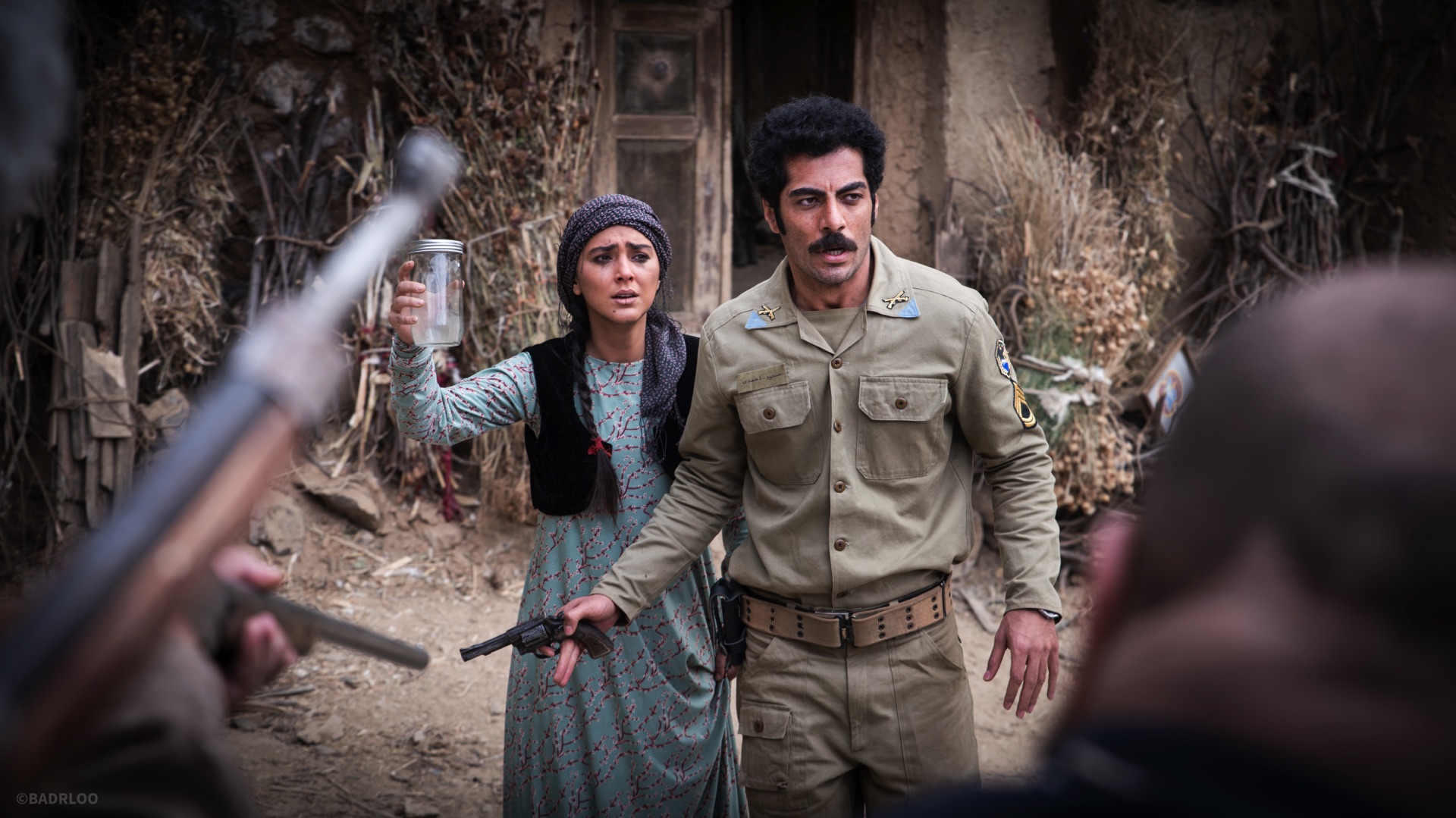
A little bit of superstition never really hurts anyone and for most people their superstitions are pretty mild. That isn’t the case for the residents of Zalava, a small town in Kurdistan, as they believe that the only way to restrain a demon that has possessed someone’s body is to shoot that person in the leg. Their fear of demons, and being possessed by said demons, completely overtakes the town until Sergeant Mousad (Navid Pourfaraj), a stoic military officer, goes to the town to investigate the incident. Mousad believes that the best way to keep the people of Zalava from hurting themselves is to confiscate their rifles, which turns out to be unconstitutional and leads to his dismissal from his current post. Just before Mousad is set to depart, a rider from the town comes to the military base begging for help saying that they are overrun with demons. A desperate Mousad heads back to the town in the middle of the night in order to clear his name and reclaim his post.
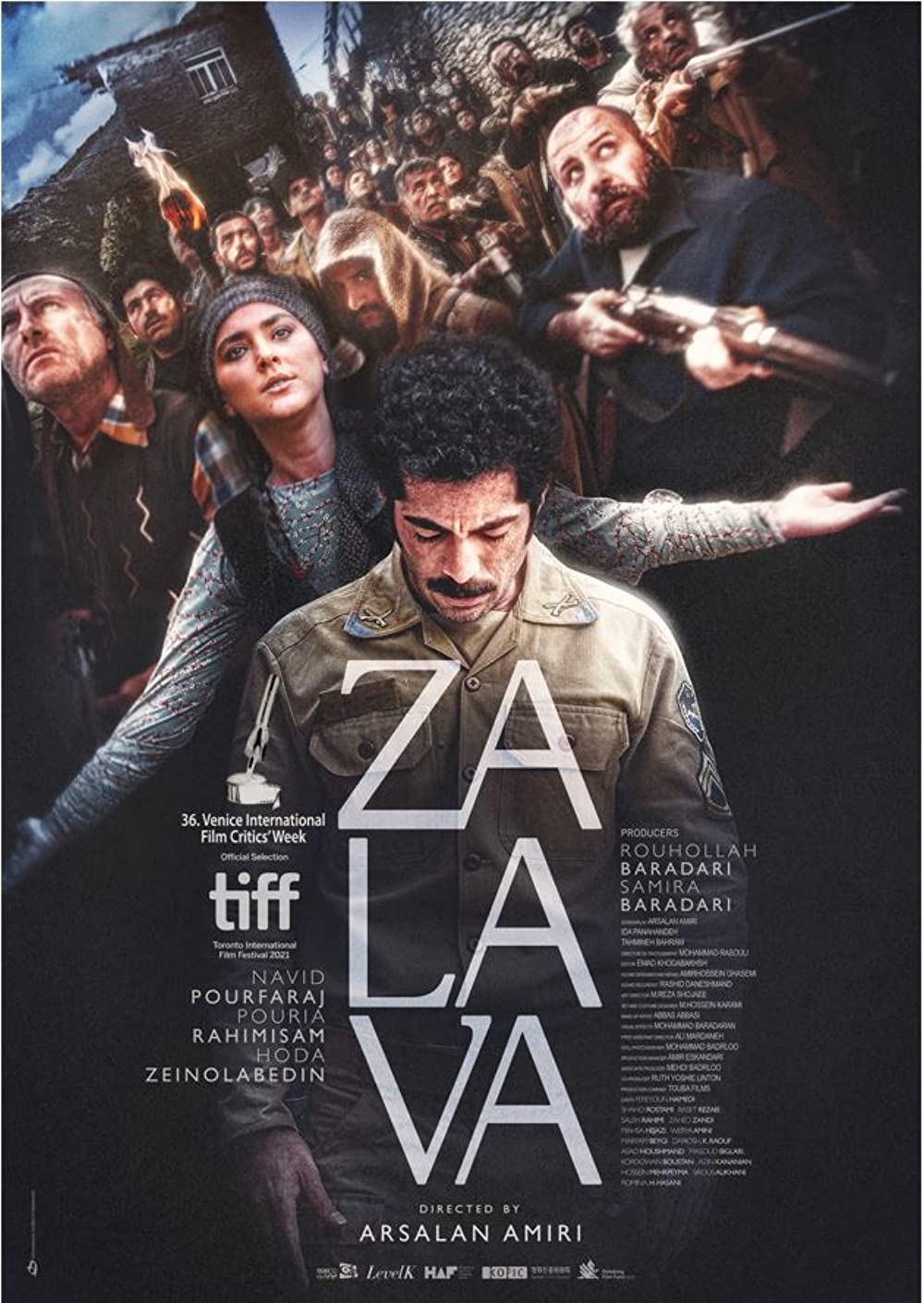
When Mousad arrives the town is in an uproar. The villagers have their rifles back and they are all gathering near a home where a boy is supposedly possessed. Everyone is waiting for the exorcist to arrive. A brief backstory during the intro lets you know that the people of Zalava are descendants of a group of Roma peoples that settled in the area a long time ago and many of their traditions are still an integral part of their lives. I only mention this because Zalava is an Iranian film set in 1978, one year before the Iranian Revolution. Iran was considered to be a secular country at the time, but Islam was still the primary religion of the region. Islam is not immune to superstitions within the religion, but tradition and customs tend to replace superstitious beliefs. This makes the fear that the people have of demons a more foreign concept to Mousad. While Mousad is trying to make heads or tails of everything that is going on the exorcist, Amardan (Pouria Rahimi), arrives at the village. He tells the people that he can not only rid the boy of the demon, but he can take care of this problem for good. To Mousad though, Amardan is nothing but a charlatan set on exploiting the village.
Before Mousad steps in, Armadan tells the villagers that he will enter the home to exorcise the demon. If he is successful he will contain the demon in the jar, but if he returns empty-handed, someone must draw his blood below the waist to trap the demon in his body. Director Arsalan Amiri deliberately never shows the shaman perform the exorcism. In fact, he never actually shows the possessed individual. For the people living there, possession is never a question to them and the audience is meant to experience this through the eyes of Mousad. To him, all of this is just a superstition that has led to mass hysteria in the village and there aren’t really demons everywhere. Unfortunately for him, he is the only one that believes this and he is surrounded by people who are eager to draw blood. When the exorcist returns from the house he is holding a jar that he claims holds the demon, but before he can “deal” with it for good Mousad arrests him and returns to the military base.
With the exorcist in holding and the demon in a jar, Mousad is now faced with a challenge that he did not see coming. Should he prove to himself that all of this is one big lie and open the jar? It turns out to be more difficult for him than expected, as he starts to question his own pragmatism about the situation. What if he was wrong and there really is a demon in the jar? A huge part of Zalava’s brilliance is to take a situation that seems so ridiculous to someone who is not part of that culture and simply plant the seed of doubt in them. When everyone else around you is cultivating that doubt with their own fervent superstitious beliefs, you can quickly become engulfed in the hysteria yourself.
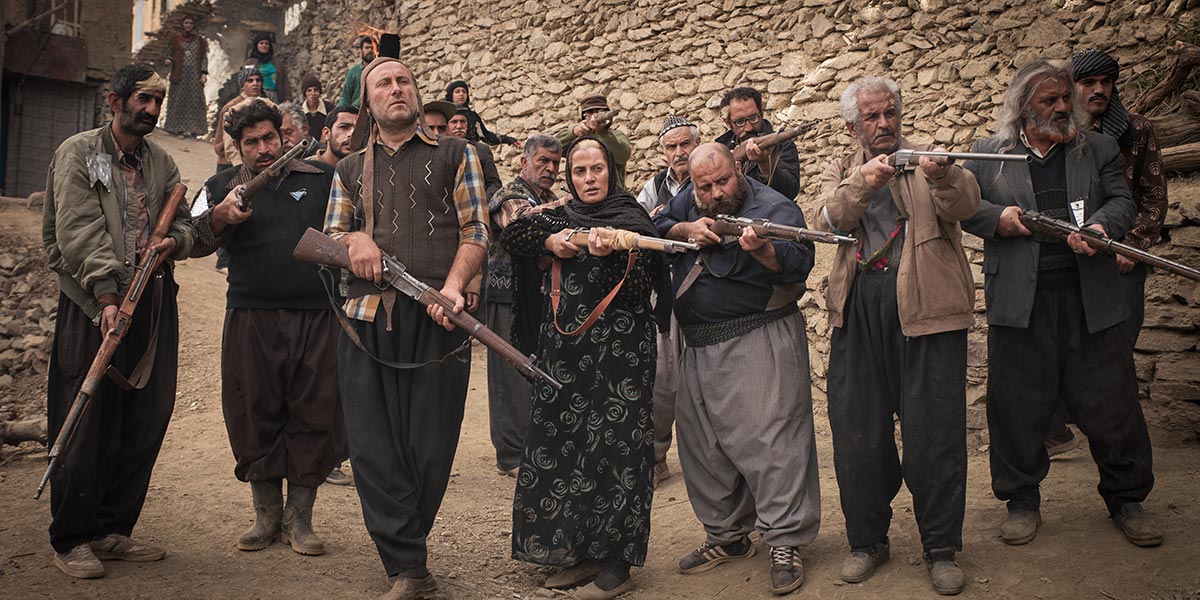
I really don’t want to give away any more of this film than I already have, because what follows after Mousad locks up Armadan is an intense situation where no one can be trusted and anyone could potentially be possessed. I never found Zalava to be truly scary in the sense that a possessed demon might pop out of the shadows for a jump scare, but rather the disturbing notion that a group of people could be hellbent on hurting you because of a superstition that they carry. The beauty and perfection of this film lies within its simplicity. There are no flashy special effects and elaborate action sequences, but the dread is absolutely palpable. As soon as you see just how completely committed the villagers are to the idea that demons are plaguing their town, you instantly feel like the slightest spark could ignite the whole situation.
If you are going into the movie expecting to see a traditional exorcism tale with priests or shamans battling an all-powerful supernatural force, you will be very disappointed because that just isn’t the story that Arsalan Amiri is telling. Instead, what you get is a very tense slow burn of a film that starts to get under your skin and make you question if the villagers are right. Maybe it is ok to shoot someone in the leg if it makes sure you contain a demon.
It doesn’t hurt that Zalava is very appropriately timed in its release, with the world currently grappling with movements of misinformation that can quickly persuade even the most pragmatic person to embrace a completely false narrative. Connecting these ideas through the lens of an Iranian exorcism film is nothing short of brilliance and one of the reasons I love this kind of storytelling so much. Zalava is an absolute must-see if you are a fan of slow burn horror, but the psychological aspects of the film could definitely attract fans of thrillers that maybe aren’t as big on the overblown effects seen in typical demonic possession movies.

Zalava was screened as part of the 2021 Fantastic Fest.
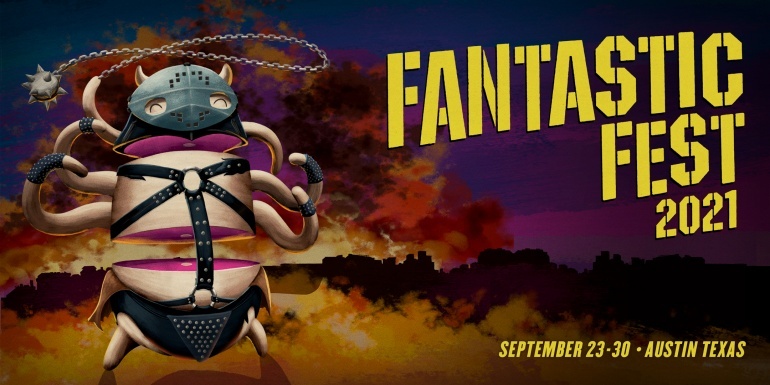
More Festival Coverage
Else (2024) Film Review – Dissolving into the Infinite Unknown [Fantastic Fest]
Anx and Cass are on opposite ends of the scale when it comes to personality. Anx is overly cautious while Cass grabs life by the balls and makes the most…
New Religion (2022) Film Review – The Degradation of Society
New Religion is a 2022 Japanese surrealist horror, written and directed by Keishi Kondo in his feature-length debut. Kenshi is also known as the writer/director/cinematographer behind the drama short See…
Ultrasound (2021) Film Review – A Meticulously Composed Surreal Nightmare
Rob Schroeder delivers one incredible directorial debut with this aesthetically lush and deliciously convoluted mystery box film. After his car breaks down during a storm, our protagonist Glen (Vincent Kartheiser)…
God’s Petting You (2022) Film Review – Dark and Dirty British Comedy
Heroin addict Charlie (George Webster) has been going to group therapy, though secretly showing up just to meet with his dealer. When a young woman joins the therapy session Charlie…
I, Dolphin Girl Film Review – Supersonic Head Explosions!
Japan seems to have nailed the absurdist comedy, whether that’s big budget to small indie features, no other country is comparable in wit at embracing the peculiar. Available at Japan…
I’ve Died A Lot Lately (2022) Film Review – Death and Rebirth of a Slacker
Having recently lost her grandmother, Satoko Sato finds herself deeply withdrawn from the pressures of Covid landing her in the position of a NEET. However, at the age of 32,…
![Else (2024) Film Review – Dissolving into the Infinite Unknown [Fantastic Fest]](https://www.grimoireofhorror.com/wp-content/uploads/2024/09/Else-cover-365x180.jpg)


